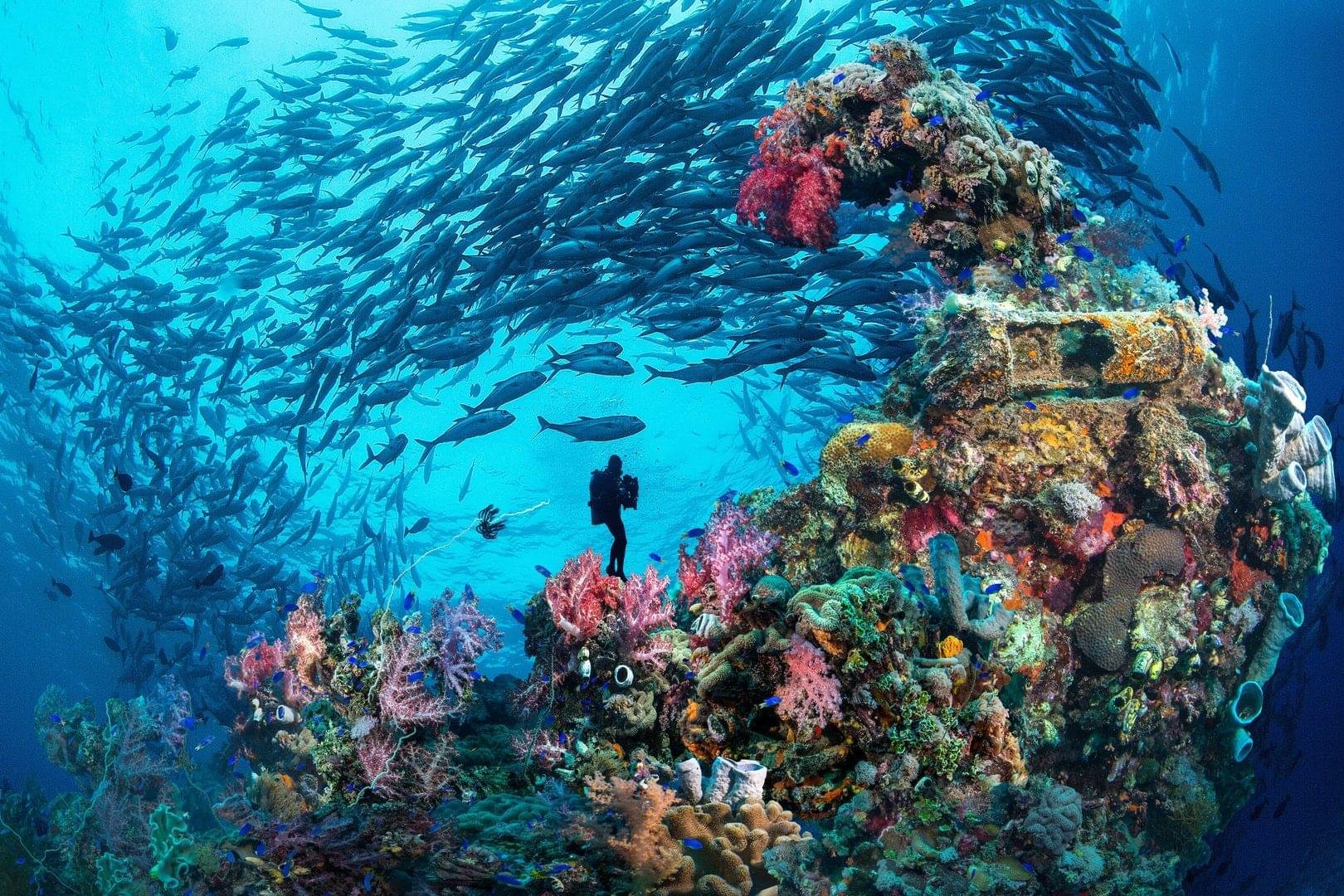
Federated States of Micronesia - 61.55
67
Race to the bottom (of the ocean)
Like many of its Pacific neighbors, the Federated States of Micronesia is doomed to sink below the waves. At the current rates of sea level rise, the entire country will be underwater no later than 2100 and many of the country’s most populous islands will be rendered uninhabitable by 2050. At this point, it looks highly unlikely that even the most valiant climate change efforts can save Micronesia. But, in the meantime, Micronesia is a relatively standard South Pacific archipelago nation in terms of metrics. The country’s democracy is strong, it is relatively free, and human rights are largely guaranteed. However, the country suffers from a weak economy and poor health. A significant factor in both of these issues is the country’s lack of ready access to food, driving up cost of living and encouraging people to turn towards cheap and unhealthy foods, causing an obesity epidemic. One issue not commonly seen among Pacific peers is endemic corruption. Micronesia is in a compact of free association with the United States, and American overseers frequently complained about the misuse of aid funds in the country. Micronesians should take solace in this relative stability while it lasts, as drastic changes within most of their lifetimes are coming.
Human Rights - 72
Micronesia has fully abolished the death penalty. Prisons in FSM lack onsite medical facilities, with injured prisoners taken to the nearest hospitals. However, this presented few issues both for inmates and patients. Courts in Micronesia are severely backlogged and pretrial detention is known to take months or years. Homosexuality is legal and Micronesia guarantees discrimination protections but does not guarantee any other rights for LGBT Micronesians. Micronesia lacks a military in which LGBT Micronesians could serve, so this was not counted against their score. Abortion is legal to save the woman’s life.
Democracy - 88
The president and vice president are elected by the Senate. The unicameral senate is directly elected. Elections are free and fair with no party system and all candidates run as independents. There are no formal restrictions on party formation. The Yap Council of Chiefs has some legislative authority, with the chiefs nominated by the country’s recognized tribes. Most villages are led by unelected tribal chiefs, patriarchs, or matriarchs. Many villages are made up exclusively by one large extended family or clan, so this was not usually an issue. LGBT Micronesians are disenfranchised.
Freedom - 81
Freedom of the press is generally respected. The Yap Council of Chiefs unsuccessfully demanded the expulsion of a foreign journalist for “publishing misleading news articles.” Journalists are sometimes (but rarely) intimidated by the government. The government is often known to pull advertising from dissenting news organizations. All drugs are illegal in Micronesia but these laws go seldom enforced. Most guns are illegal in FSM but .410 shotguns and .22LR rifles are allowed for bird hunting. Fishing harpoons are classed as firearms in Micronesia and are allowed by law under license.
Economy - 43
Health - 34
The Federated States of Micronesia has a life expectancy of 68 years and an infant mortality rate of 2.45%. 45.8% of Micronesians are obese and 1.4% are malnourished. Micronesia’s universal healthcare infrastructure is weak, as some populated islands lack access to a public healthcare facility of any kind. Hospitals are usually understaffed and undersupplied where they do exist. Only 49% of Micronesians have access to clean, running water in their homes. Most of the population is reliant on communal wells.
Corruption - 31
American overseers frequently complained about the misuse of aid funds. Aid money frequently “goes missing” and large amounts are spent on “operating expenses.” Petty corruption in Micronesia goes generally unpunished, and nepotism and favoritism are rampant in nearly all sectors. Police extortion occurs but it is not rampant.
Competency - 34
The government is failing to provide for the people, as significant parts of the population lack easy access to government services. The government is failing to control corruption, which is present in FSM at a higher level than in most other Pacific island nations. The government is failing to control poverty, which remains prevalent in Micronesia at a higher level than in most other Pacific island nations. The government of Micronesia is currently facing extreme circumstances as the entire country is threatened with rising sea levels. The country has limited options in this field.
Future - 19
All of Micronesia is likely to be underwater by 2100, thus limiting their score to 20. Additionally, most major islands will be rendered uninhabitable by 2050. The country has no real response for this imminent problem, as the vast majority of man-made climate change was caused by those countries not immediately affected by it.
Actions Abroad - 86
Micronesia maintains no military of any kind. Micronesia is in a compact of free association with the United States, which entitles it to certain foreign and military aid. Micronesia sold recognition to the People’s Republic of China. Micronesia had previously recognized Taiwan but sold its UN recognition to the PRC in exchange for a large foreign aid package.
15.4% of Micronesians live below the international poverty line and 41.2% live below the national poverty line. 16.2% of Micronesians are unemployed. Micronesia has a low economic disparity. The minimum wage in FSM is $2.65 per hour. Micronesia’s universal healthcare infrastructure is weak, with some populated islands lacking access to a healthcare facility of any kind. Most hospitals are understaffed and undersupplied. No GDP growth data exists for Micronesia in 2020 but the Micronesian economy grew 1.2% in 2019.
